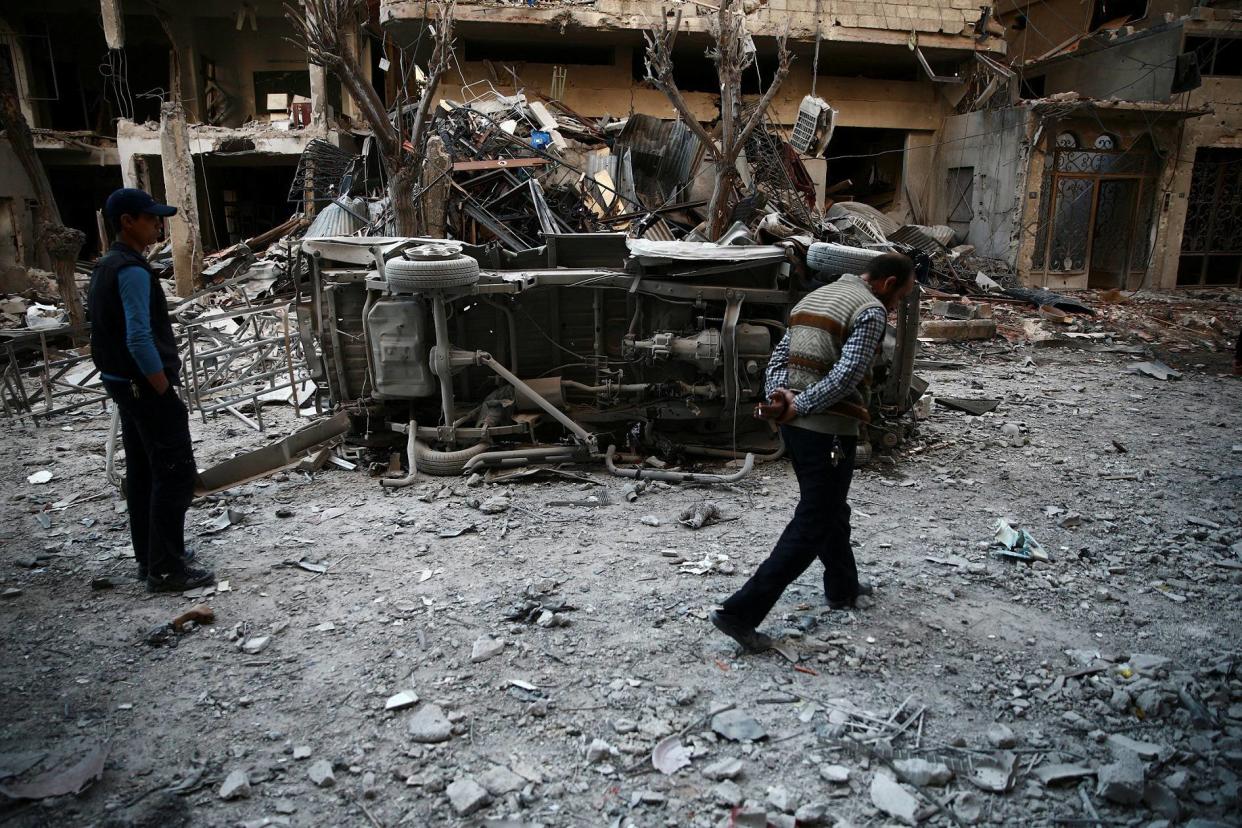Russia Downplays US Efficiency On Syria Missile Strikes

Russia’s defense ministry Wednesday downplayed the U.S. claims of the efficiency of missile strikes on Syrian government-controlled air base in the war-torn country. President Donald Trump’s move to attack the Shayrat air base in retaliation to a deadly chemical gas attack that killed nearly 100 people has been criticized by Moscow.
On Tuesday, Army Gen. Joseph Votel — also commander of U.S. Central Command — said Tomahawk cruise missiles targeted 59 locations on the base and hit 57 of them. He also said the strikes "severely degraded" Syria's capability to use the base.
However, on Wednesday, Russian Defense Ministry spokesman Maj. Gen. Igor Konashenkov said Washington’s efficiency claims were made for the “Americans audience” and not for professionals.
"The Pentagon's remarks on the alleged high efficiency of the mass missile attack on the [Shayrat] airbase were made for the American audience, not for professionals," Konashenkov said, in a statement posted on Facebook, adding the U.S. managed to hit the targets because they were large in size.
"So in case 59 Tomahawk cruise missiles had not been launched hundreds of miles away, and just dropped on Ash Sha’irat from air balloons, the effectiveness of the 'strike' would have been the same in terms of cost — more than $ 100 million — and in terms of accuracy of hits," Konashenkov said.
On Tuesday, Secretary of State Rex Tillerson gave Russia an ultimatum to side with the U.S. and the countries opposing Syrian President Bashar Assad’s regime or support Assad, Iran and the Islamist group Hezbollah.
"We cannot let this happen again," Tillerson said. "We want to relieve the suffering of the Syrian people. Russia can be a part of that future and play an important role — or Russia can maintain its alliance with this group, which we believe is not going to serve Russia's interests longer term."
Tillerson, however, noted there was no evidence that Moscow had prior knowledge of last week’s chemical gas attack in Idlib.
Related Articles


